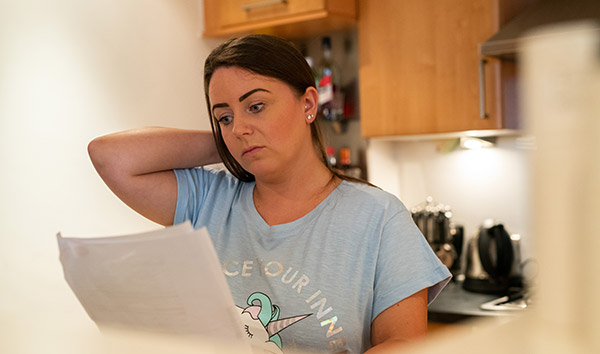Debt Arrangement Scheme: 7 things you didn’t know about DAS
If you’re one of our avid followers you’ll be well aware of...

Mother Theresa was once quoted as saying “The most terrible (form of) poverty is loneliness”. Considering that in today’s society loneliness is said to be on the rise, she may well have been onto something.
Problem debt and rising living costs are a burden for many people, but it seems that people living alone have it especially tough. A 2011 study by Co-operatives UK found that 51% of a single person’s income goes on essential items such as housing, food and utilities compared just 30% of income earned by people living together. Dealing with this kind of pressure can surely intensify the negative feelings a lonely person goes through.
There’s more: according to the 2010 Lonely Society report by the Mental Health Foundation, the percentage of households occupied by one person more than doubled from 6% in 1972 to 12% in 2008. They also stated that more than a third of us (42%) have felt depressed because we felt alone.
If you take a look at our Debt in Mind page you’ll see debt and these feelings are often linked. If you’re feeling lonely it helps to understand more about these feelings.
The problem with loneliness is that it can become a vicious circle. You may genuinely enjoy your own company and like to have time away from people. This is normal. The problem arises when you need and crave interaction but for whatever reason it’s not available to you.
The mental health charity Mind says that loneliness is not the same as being alone. You might choose to be alone and live happily without much contact with other people. On the other hand, you may be a ‘social butterfly’ or be in a relationship or part of a busy family and still feel lonely. If you can tell the difference, you can work to make things better.
Feeling lonely can severely compromise your mental health. Studies show that lonely people feel more stressed, have lower self-esteem and struggle with insomnia. All of these things can be experienced by a person overwhelmed with debt and stress.
If you suspect that your loneliness could develop into a mental health problem, it may be a good idea to talk to your GP. Also keep in mind that you can pick up the phone anytime and talk to Samaritans.
Having debt – especially secret debt that no one knows about – can make a person feel incredibly isolated. 6.2 million UK citizens hide debts from their partners, the people they’re meant to feel the most relaxed and open with.
As we spoke about in our article about debt and relationships, it’s crucial to your wellbeing that you tell someone what you’re dealing with. Speaking about your feelings can help you feel less alone and release tension.
To battle loneliness if someone told you to “get a hobby” it could almost seem flippant, but there is some truth to the statement. Think about what interests you and look online to see if there’s any groups in your community that share your interest. If you don’t know what interests you, then try something new and daring like a writing or dancing class (I met one of my best friends this way!).
Another great way you can solve your loneliness is to give your time to others. Do-it.org is heaving with volunteering and fundraising events – what better way to meet like-minded people who may be feeling lonely too?
We speak to thousands of people just like you who are dealing with myriad feelings alongside their debt problem, a main one being loneliness. If you find talking about your debt difficult, you can still get help anonymously via our online tool Debt Remedy.